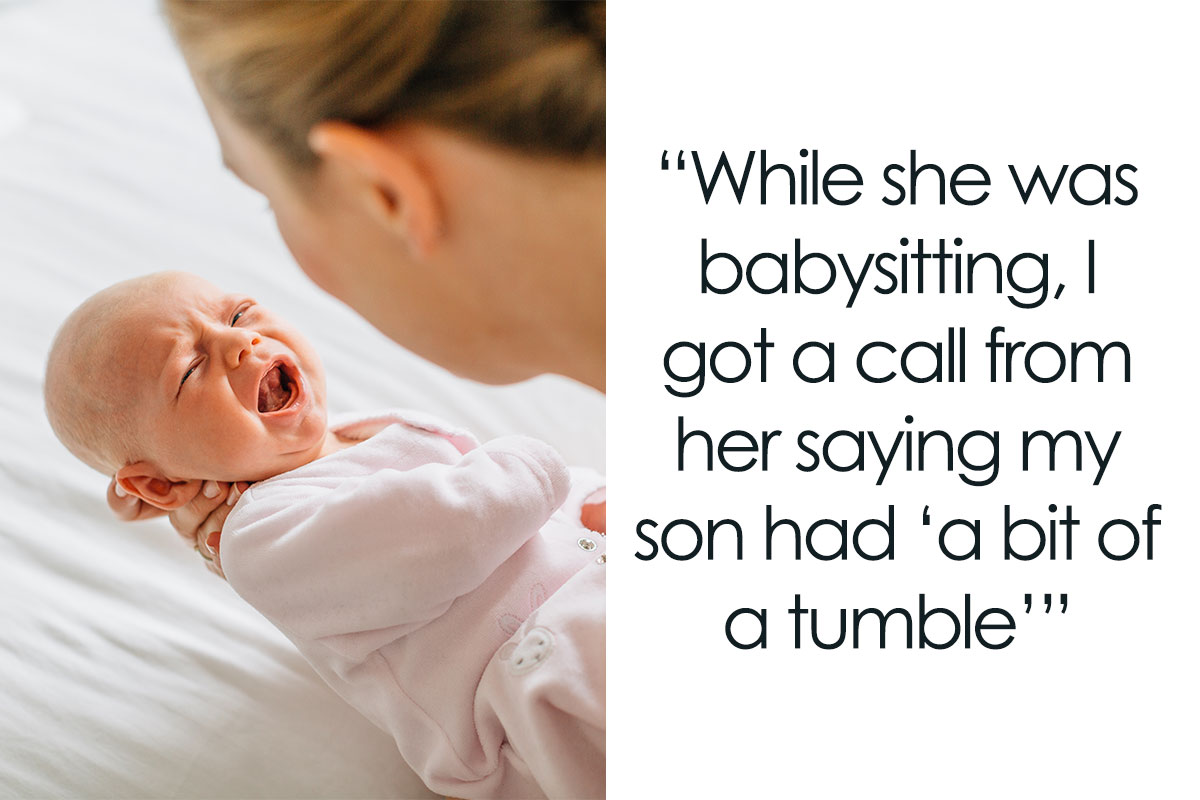
Great-Grandma Doesn’t Call For An Ambulance After 3-Month-Old Ends Up Being Dropped Down The Stairs, Furious Mother Teaches Her A Lesson
If you give each person a dollar for every time they brushed off a bruise or a bump as if it will just go away, you’d have enough to buy yourself a book. And while this is a somewhat okay attitude on a personal level, you shouldn’t expect people to shower you with trust if that’s your motto for everything and everyone.
As u/justdoingmybest93 tells in her ‘Am I The [Jerk]‘ story, this was the exact case with her husband’s grandmother who didn’t scream ‘role model babysitter’ because of her “everything will work out fine” attitude. After receiving an alarming phone call from her about “a bit of a tumble” the author’s baby had while under grandma’s supervision, her motherly senses said to get a professional opinion instead of downplaying it, like the husband’s nana did.
However, despite everything turning out okay in the end, grandma’s blasé right-in-the-face attitude was the last straw for the already tolerant mother. So, in the style of her grandmother-in-law, the author exaggerated a few details in the doctor’s report to teach her a lesson – something that some family members thought was over the line. And what’s a better way to settle this than to bring the case before the all-knowing ‘AITA’ community.
After witnessing how careless her husband’s grandma was with their newborn’s health, this mother decided to teach her a lesson
Image credits: Image-Source (not the actual photo)
Image credits: Pavel Danilyuk (not the actual photo)
Image credits: justdoingmybest93
While it is widely acknowledged that the grandmother’s choice to downplay the newborn’s injury was irresponsible, the truth is that people engage in such behavior on a regular basis. A notable example is observed during the emergence of the Covid-19 pandemic, where researchers discovered that many individuals willingly minimized their symptoms to justify their participation in activities they cherished.
Similarly, throughout history, people have routinely downplayed the seriousness of their symptoms when interacting with healthcare professionals, often driven by fear of potential changes in medication or unfavorable diagnoses. According to recent data, as many as nearly half of individuals are inclined to provide inaccurate information about their symptoms.
“Health checkups can be very aversive first because they can be uncomfortable, they are typically inconvenient and we can fear the results,” Tim Pychyl, a recently retired psychology professor at Carleton University and the author of ‘Solving the Procrastination Puzzle,’ told Bored Panda in an email. “We cope with this aversiveness with avoidance.” Simply put: running away from the problem.
But it’s not only fear that can motivate downplaying health-related problems – our dear friend procrastination, or “the voluntary delay of an intended action despite expecting to be worse off for the delay,” also plays a big part in this, Pychyl says.
“Our research showed that uncertainty is highly correlated with procrastination. When we’re not sure how to proceed, we’re more likely to procrastinate,” he explained. In the context of health, uncertainty often arises regarding the urgency of addressing our health concerns, the timing of appointments, and even the choice of healthcare provider. All these factors collectively contribute to a tendency to procrastinate. A particular study suggests that a significant proportion, or as many as 1-in-5 adults, can be classified as “chronic procrastinators.”
Also, looking at our scenario from a different angle, there’s a case to be made that the mother, while being absolutely right, might have been overly protective of her child. Commonly, most new moms go through this in the early stages of motherhood, becoming increasingly protective of their little ones. And that’s absolutely fine. Except when it goes way beyond a child’s formative years.
“Over-protectiveness prevents the child from experiencing challenging situations which offer the opportunity to develop new skills,” Daniel S. Lobel, a clinical psychologist in private practice in Katonah, New York, explained to Bored Panda. An overprotective or ‘helicopter’ parent, as some like to call them, can, for example, prevent their kid from going to sleepaway summer camp due to the parent’s need to supervise the child and keep him/her/them safe.
“The child is then deprived of this opportunity to develop social skills with peers in novel situations and will likely cause the child to be fearful and inhibited when these skills are needed later in life, such as when entering new schools or attending birthday parties, etc. This fear and inhibition can extend throughout the lifespan.”
Furthermore, while social pressure from other parents can play a role, Lobel argues that it is crucial to allow children to grapple with challenges “as this helps the child build frustration tolerance, which makes them more able to take on challenges throughout their lifetime.”
Unanimously, people thought that the mother was within her full rights to teach her husband’s grandma a lesson
Okay so OP may have "lied" with her response, but the great grandmother answered the phone with "he's fine, isn't he?" And the answer to that was "NO HE HAS A FRACTURED SKULL". That's a serious condition for anyone of any age!
"No, he has a fractured skull, and your delaying calling an ambulance could have cost him his life or caused lifelong disability." That's pretty freaking serious.
Load More Replies..."Oh, he's fine, he just fell on his head!" are words I've heard as a medical doctor, to dismiss complaints of pain from infants, children, teens, adults, elderly adults, random strangers. Guess what? A head injury can be lethal. It can cause permanent damage that might not show up for *years*. Great-Grandma needed a reality check. Soft skulls and impact are a bad combo.
When my uncle was nearing 70yo, he stood up too fast, took two steps, and passed out, falling like a felled tree onto his forehead. He lived for several years after that, but his entire personality was erased. He didn't recognize us, and had his mental capacity reduced from "adult with a PhD" to a 5yo. There is LOADS of grey area between life and death, and a LOT of it is horrible.
Load More Replies...Ok, I thought I was blasé about injuries. I have always been an “it’ll be right” type of person. I’m and RN and my children practically have to be dying before I take them to the hospital. But EVEN I would have RACED a 3mo with a head injury to hospital without batting an eyelid or stopping for breath. I think this woman has lost her marbles. I don’t think she needed to be “punished” - she needs supervision, not to be left alone with children and possibly some psychometric testing or dementia assessment.
Okay so OP may have "lied" with her response, but the great grandmother answered the phone with "he's fine, isn't he?" And the answer to that was "NO HE HAS A FRACTURED SKULL". That's a serious condition for anyone of any age!
"No, he has a fractured skull, and your delaying calling an ambulance could have cost him his life or caused lifelong disability." That's pretty freaking serious.
Load More Replies..."Oh, he's fine, he just fell on his head!" are words I've heard as a medical doctor, to dismiss complaints of pain from infants, children, teens, adults, elderly adults, random strangers. Guess what? A head injury can be lethal. It can cause permanent damage that might not show up for *years*. Great-Grandma needed a reality check. Soft skulls and impact are a bad combo.
When my uncle was nearing 70yo, he stood up too fast, took two steps, and passed out, falling like a felled tree onto his forehead. He lived for several years after that, but his entire personality was erased. He didn't recognize us, and had his mental capacity reduced from "adult with a PhD" to a 5yo. There is LOADS of grey area between life and death, and a LOT of it is horrible.
Load More Replies...Ok, I thought I was blasé about injuries. I have always been an “it’ll be right” type of person. I’m and RN and my children practically have to be dying before I take them to the hospital. But EVEN I would have RACED a 3mo with a head injury to hospital without batting an eyelid or stopping for breath. I think this woman has lost her marbles. I don’t think she needed to be “punished” - she needs supervision, not to be left alone with children and possibly some psychometric testing or dementia assessment.

 Dark Mode
Dark Mode 

 No fees, cancel anytime
No fees, cancel anytime 


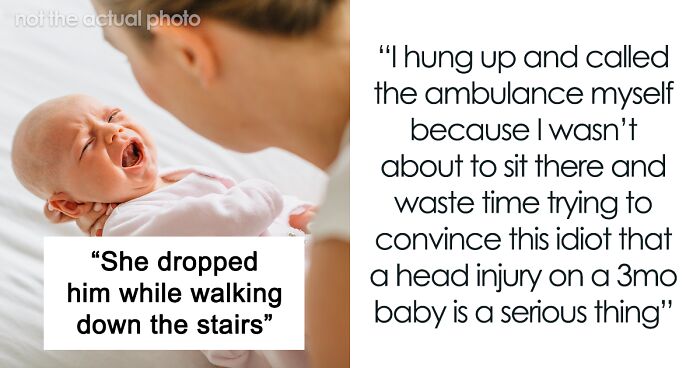

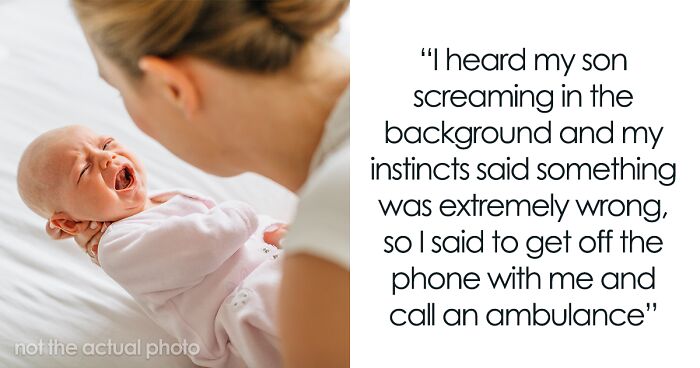







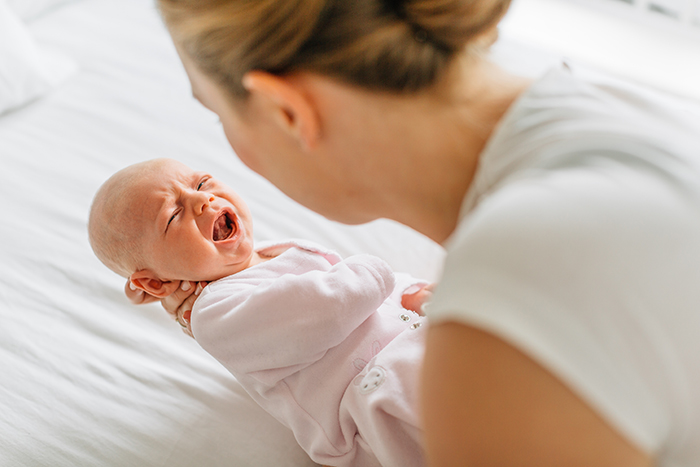
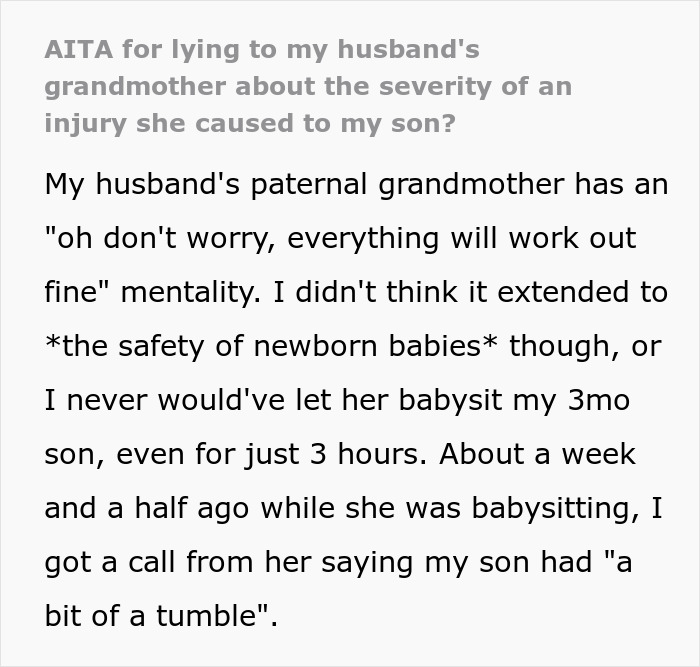
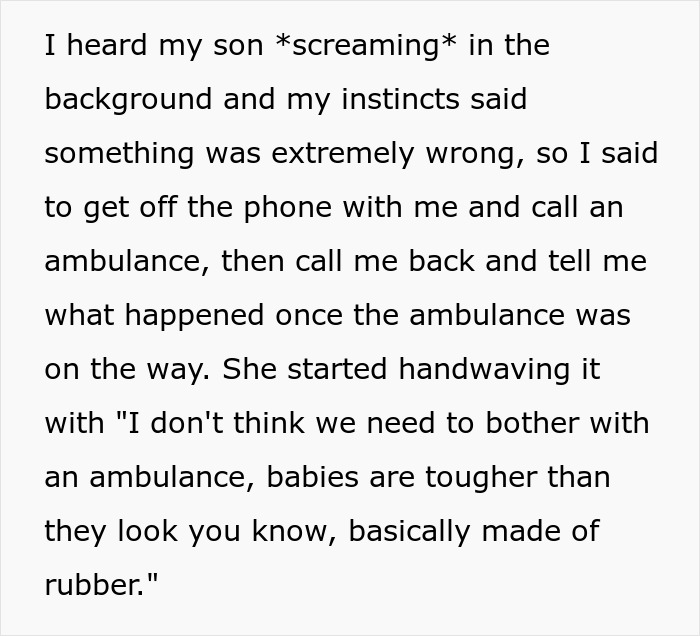
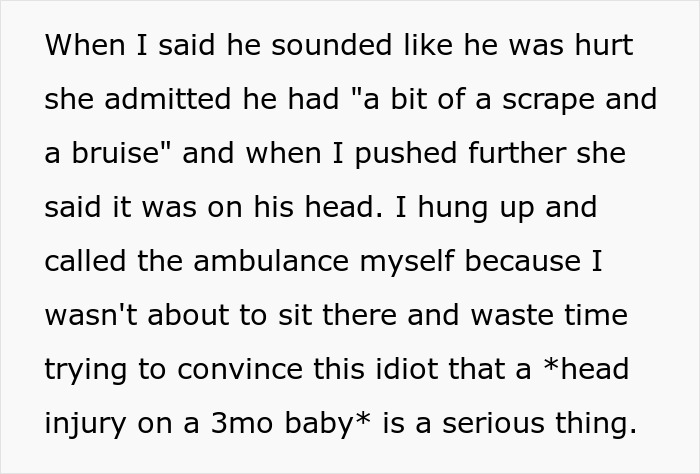
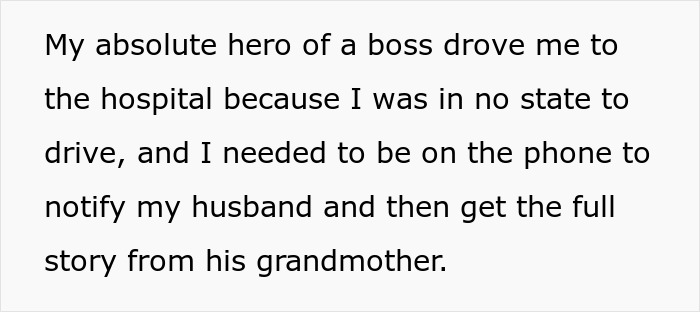
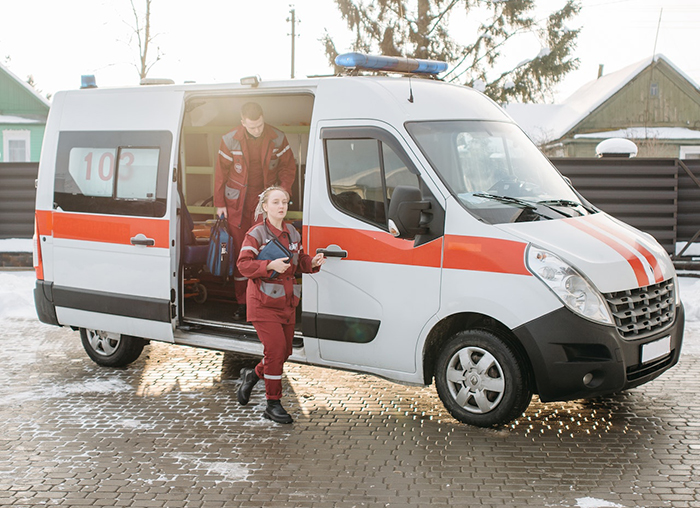
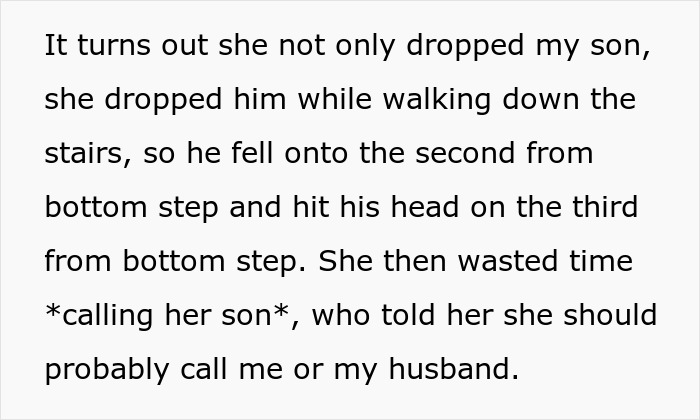

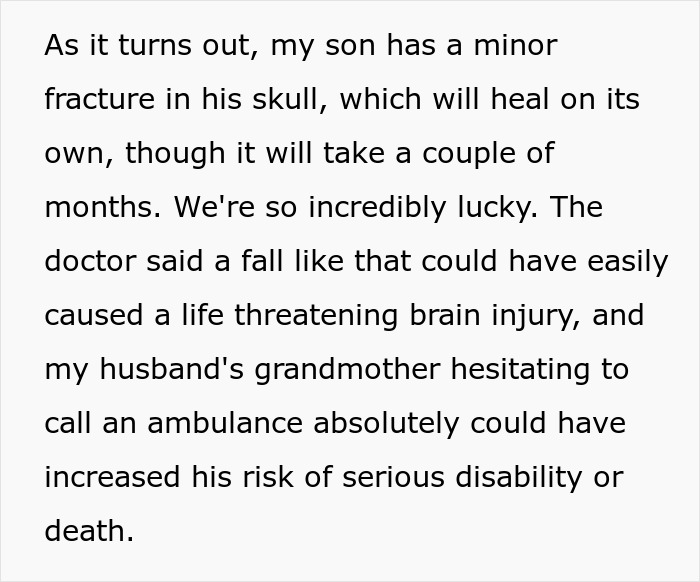
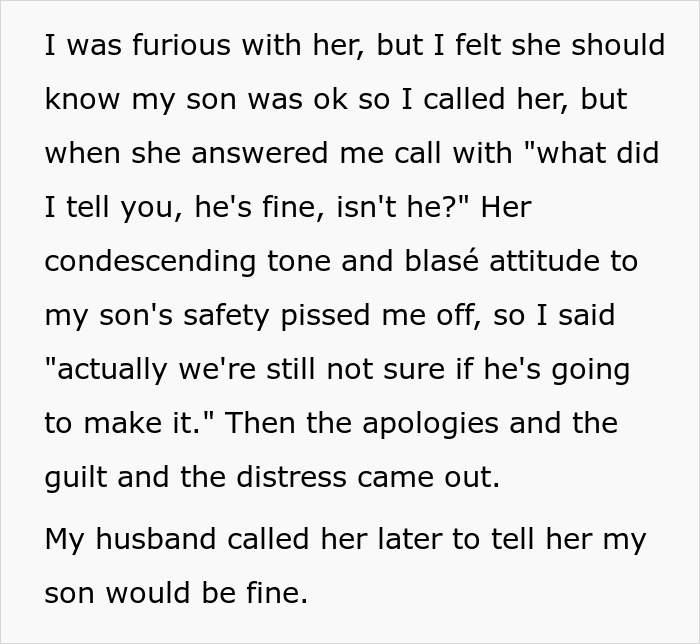
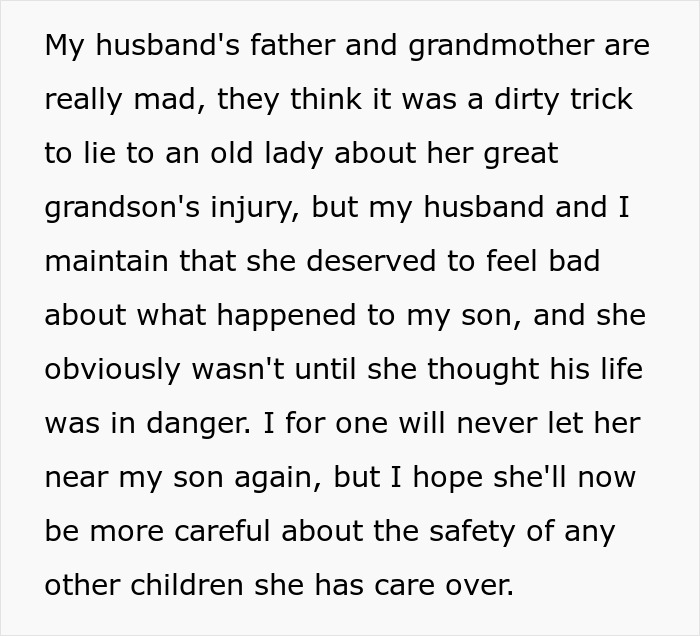
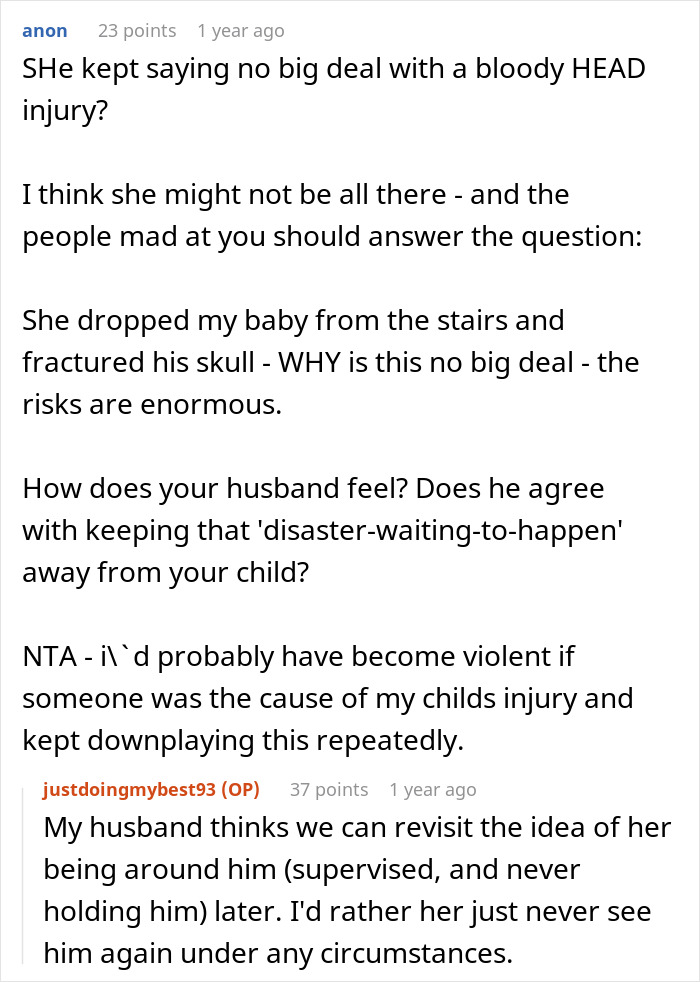
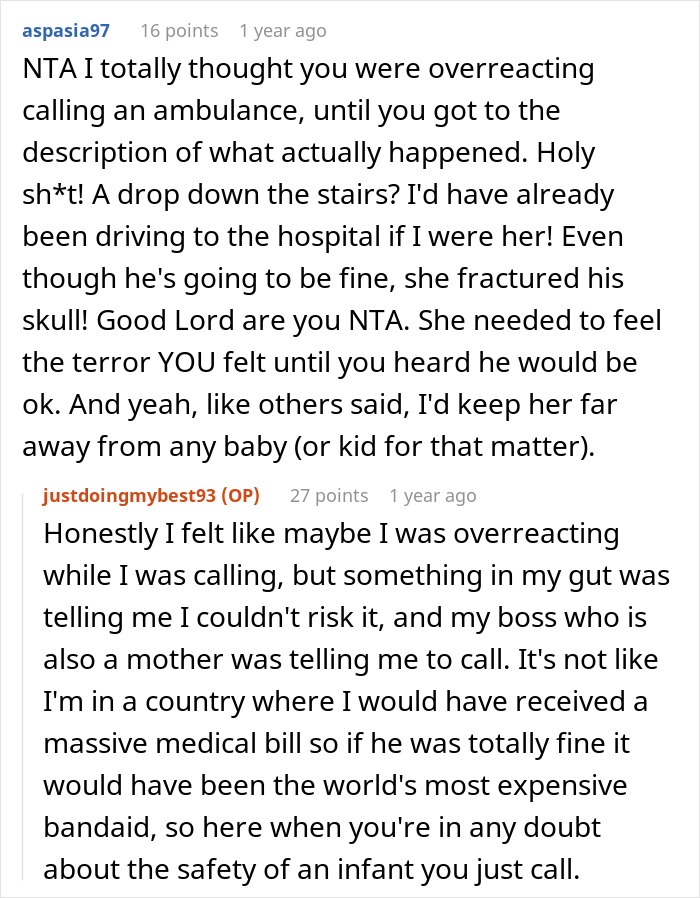
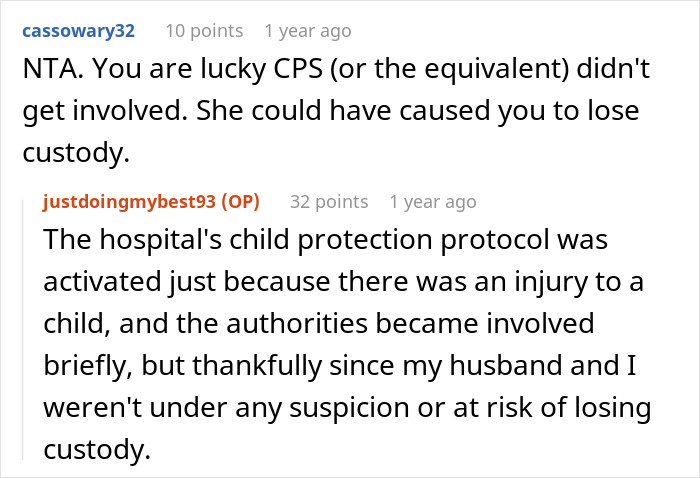
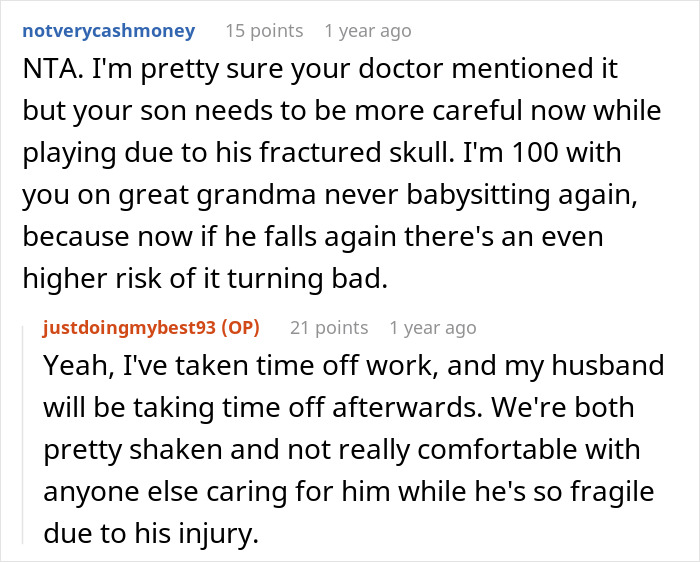
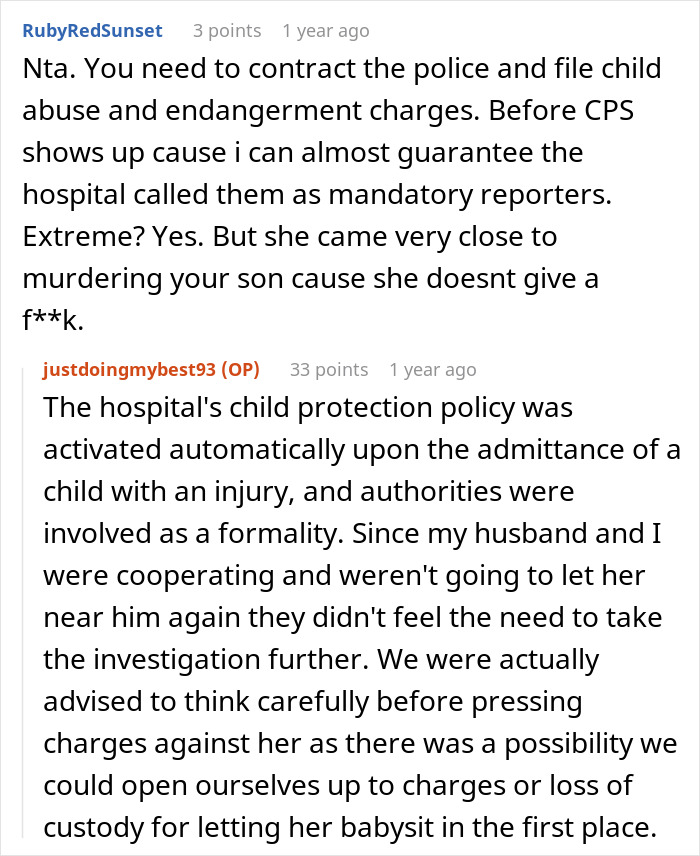
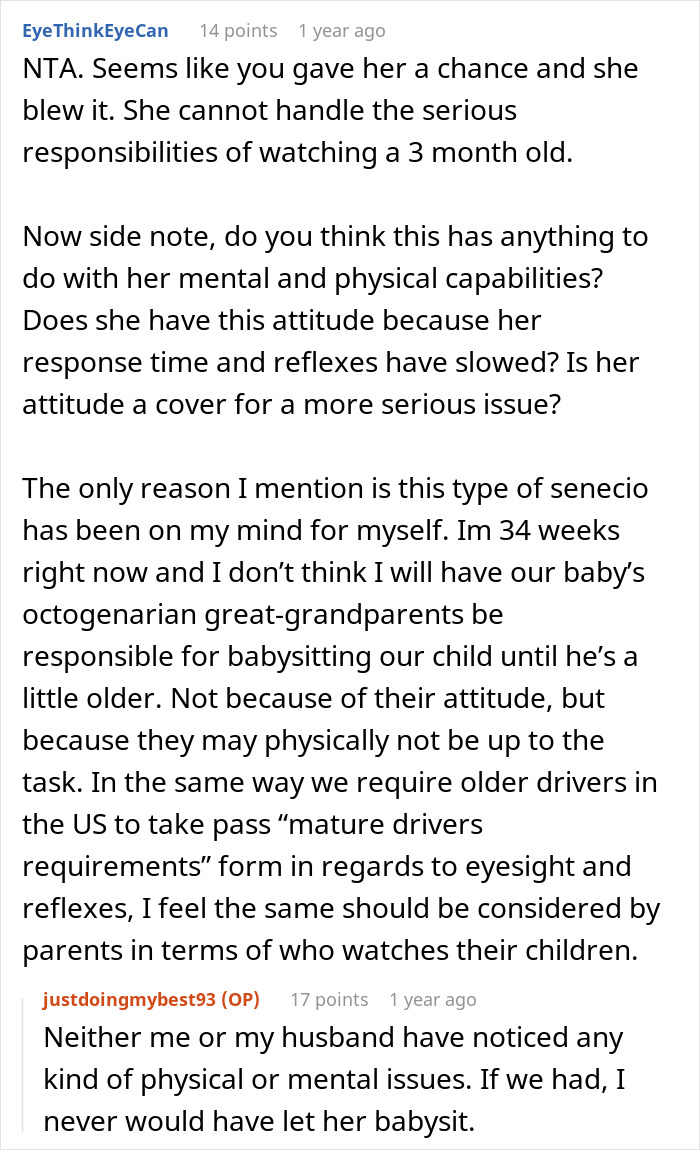
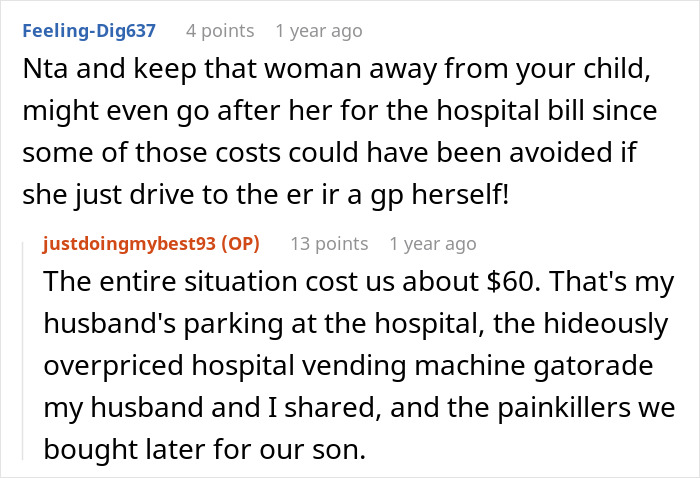

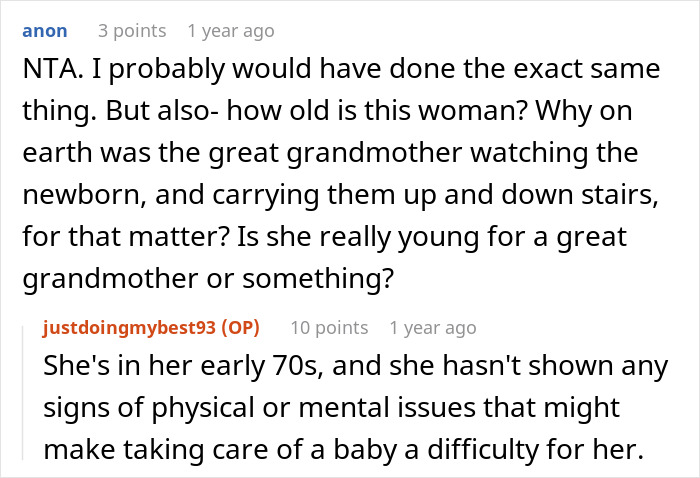
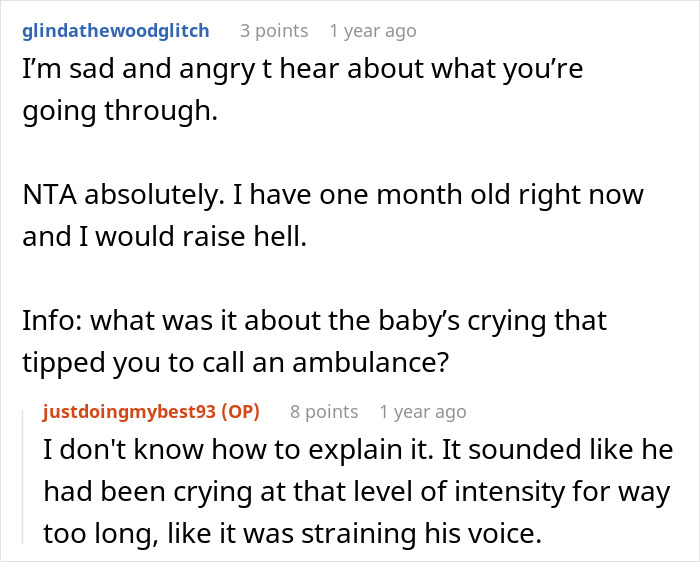

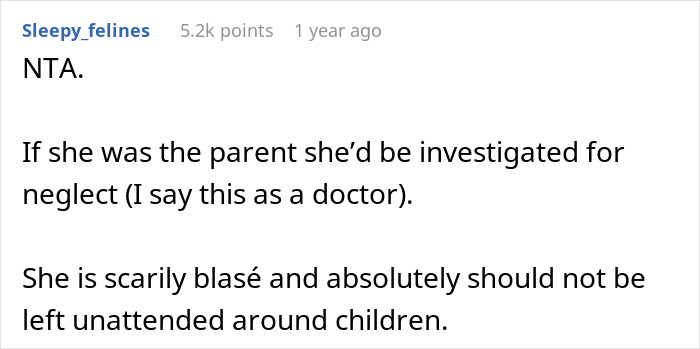
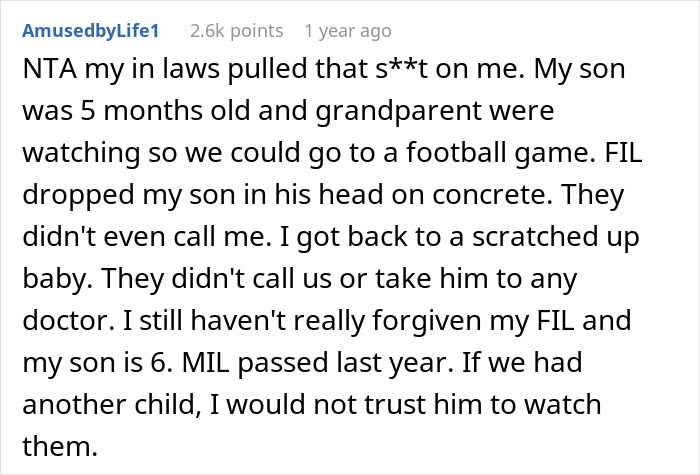
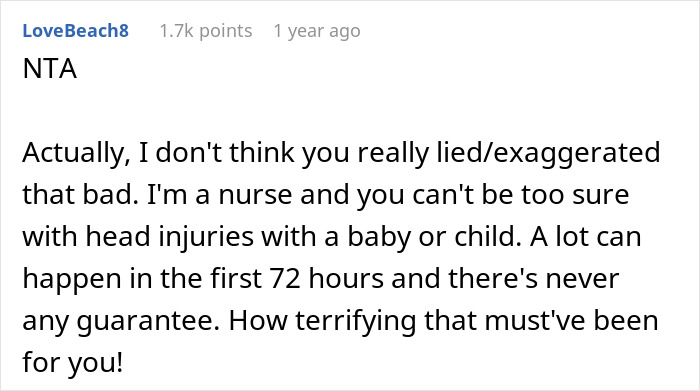
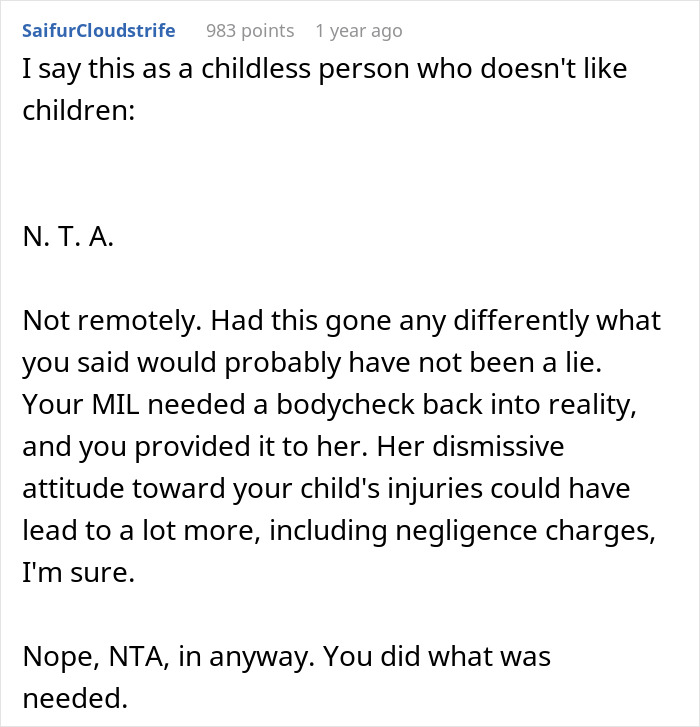





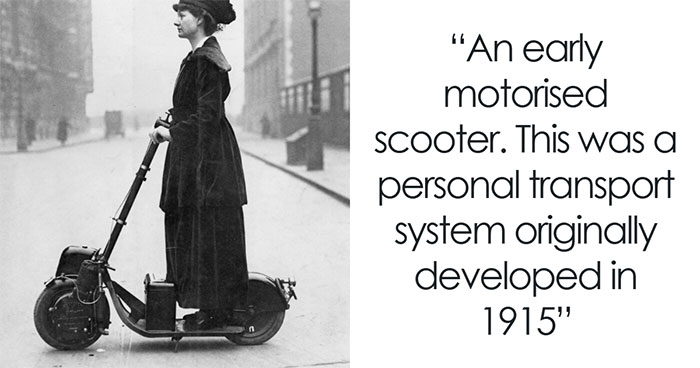



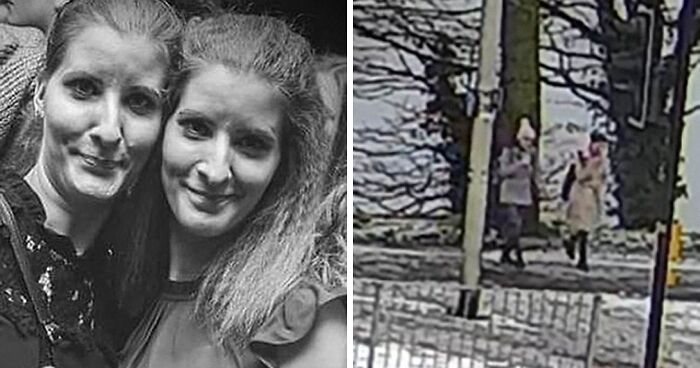
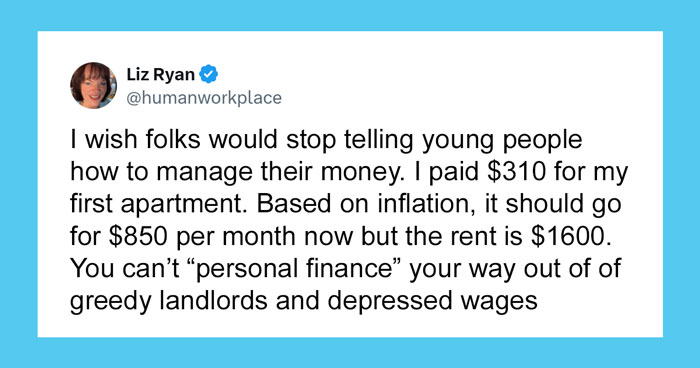






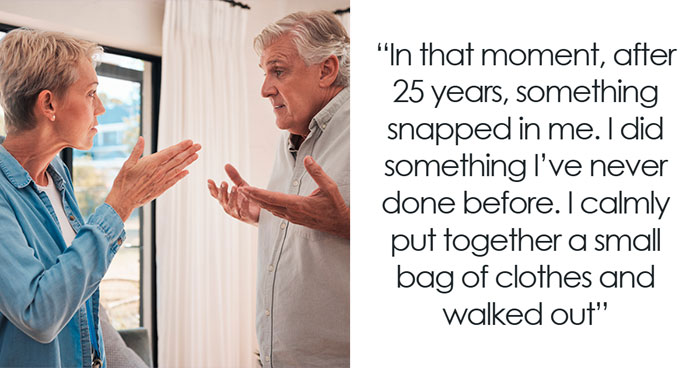

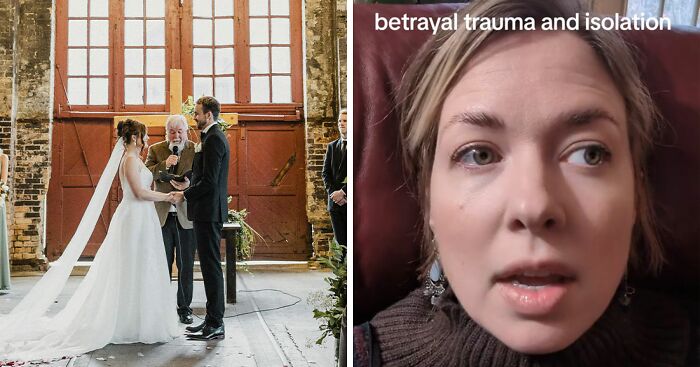
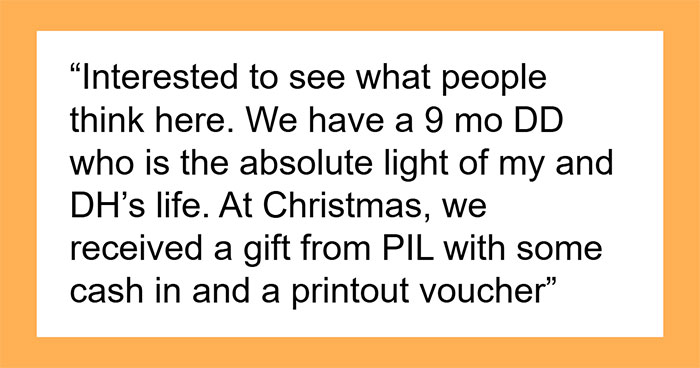
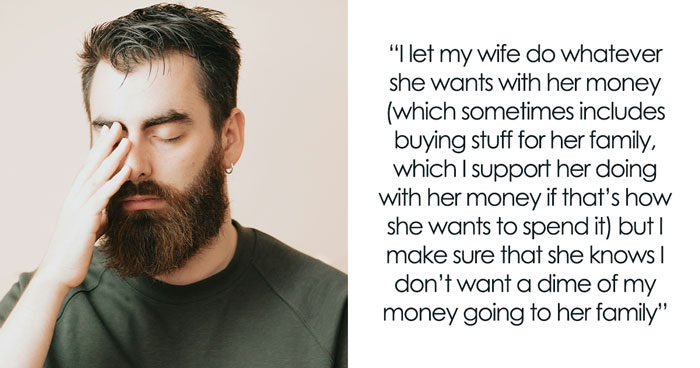

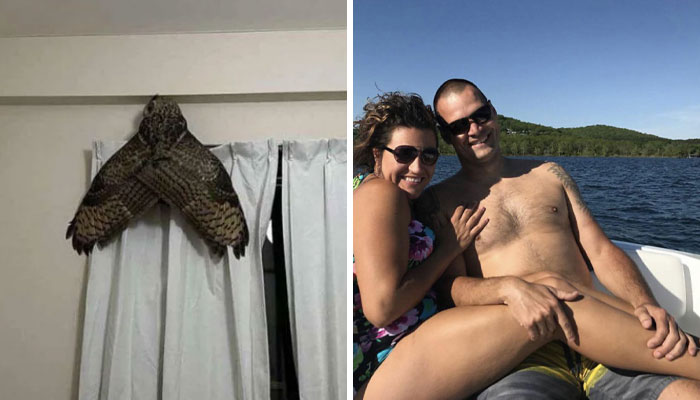
130
239